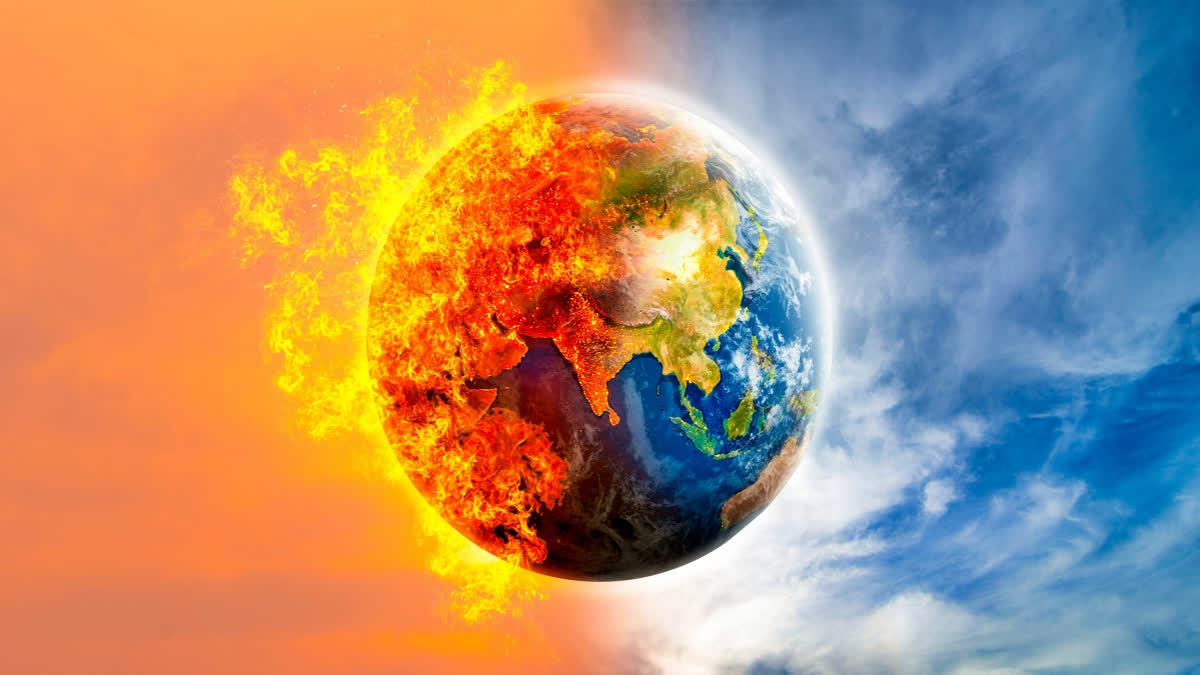Leicester (UK):In February 2000, Paul Crutzen rose to speak at the International Geosphere-Biosphere Programme in Mexico. And when he spoke, people took notice. He was then one of the world's most cited scientists, a Nobel laureate working on huge-scale problems the ozone hole, the effects of a nuclear winter.
So little wonder that a word he improvised took hold and spread widely: this was the Anthropocene, a proposed new geological epoch, representing an Earth transformed by the effects of industrialised humanity.
The idea of an entirely new and human-created geological epoch is a sobering scenario as context for the current UN climate summit, COP28. The impact of decisions made at these and other similar conferences will be felt not just beyond our own lives and those of our children, but perhaps beyond the life of human society as we know it.
The Anthropocene is now in wide currency, but when Crutzen first spoke this was still a novel suggestion. In support of his new brain-child, Crutzen cited many planetary symptoms: enormous deforestation, the mushrooming of dams across the world's large rivers, overfishing, a planet's nitrogen cycle overwhelmed by fertiliser use, the rapid rise in greenhouse gases.
As for climate change itself, well, the warning bells were ringing, certainly. Global mean surface temperatures had risen by about half a degree since the mid-20th century. But, they were still within the norm for an interglacial phase of the ice ages. Among many emerging problems, climate seemed one for the future.
A little more than two decades on, the future has arrived. By 2022, global temperature had climbed another half a degree, the past nine years being the hottest since records began. And 2023 has seen climate records being not just broken, but smashed.
By September there had already been 38 days when global average temperatures exceeded pre-industrial ones by 1.5C, the safe limit of warming set by the UN Convention on Climate Change (UNFCCC) in the Paris agreement. In previous years that was rare, and before 2000 this milestone had never been recorded.
With this leap in temperatures came record-breaking heatwaves, wildfires and floods, exacerbated by other local human actions. Climate has moved centre stage on an Anthropocene Earth.
Why this surge in temperatures?
In part, it's been the inexorable rise in greenhouse gases, as fossil fuels continue to dominate human energy use. When Crutzen spoke in Mexico, atmospheric carbon dioxide levels were about 370 parts per million (ppm), already up from the pre-industrial 280 ppm. They're now around 420 ppm, and climbing by some 2 ppm per year.
In part, the warming results from cleaner skies in the past few years, both on land and at sea, thanks to new regulations phasing out old power stations and dirty sulphur-rich fuels. As the industrial haze clears, more of the sun's energy makes it through the atmosphere and onto land, and the full force of global warming kicks in.
